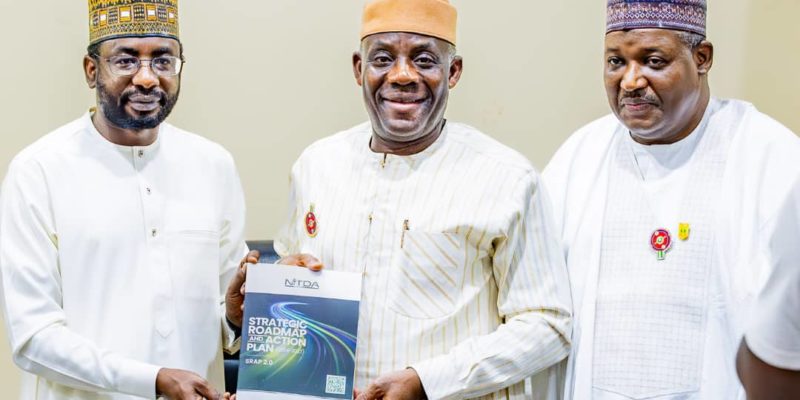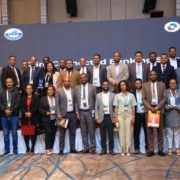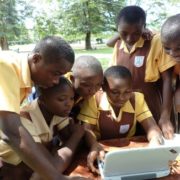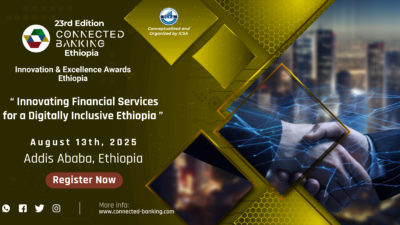In a landmark move, the National Information Technology Development Agency (NITDA) has partnered with the Ministry of Education to integrate mandatory digital literacy into Nigeria’s education system. This collaboration, is part of President Bola Ahmed Tinubu’s Renewed Hope Agenda. It aims to equip Nigerian youth with the critical skills needed to thrive in an increasingly digital global economy.
RELATED: Lawyer writes NUC, wants data protection in law studies curriculum to strengthen digital economy
The initiative spans all levels of education, from kindergarten to tertiary institutions. Its ambitious target is to achieve 70% digital literacy by 2027 and 95% by 2030. NITDA Director-General Kashifu Inuwa Abdullahi emphasized the urgency of this endeavor during a recent engagement with Education Minister Dr. Maruf Tunji Alausa.
Bridging the Digital Divide
“The future is digital, and the world is evolving faster than ever. To prepare our youth for tomorrow’s challenges, we must act today by embedding digital skills in education at all levels,” Abdullahi remarked. He highlighted that this effort is essential to bridge the digital divide and ensure every Nigerian child has the tools to thrive in the digital economy.
Dr. Alausa echoed these sentiments, praising NITDA’s vision and pledging the Ministry’s full support. “Education is the foundation of national development. By embedding digital literacy into our curriculum, we empower our children to adapt to change and drive innovation,” he stated.
A Comprehensive Approach to Digital Literacy
The initiative adopts a holistic approach to digital literacy, tackling curriculum development, teacher training, capacity building, and infrastructure deployment. Key features include:
- Curriculum Integration: Digital skills will be embedded as a mandatory component across all levels of education.
- Teacher Empowerment: Educators will receive training to effectively deliver digital literacy, transforming teaching and learning processes nationwide.
- Infrastructure Development: Deployment of digital tools and resources to ensure hands-on technology exposure for students, fostering critical thinking and creativity.
- Regional Inclusion: Equal access to digital resources in underserved and rural communities to address regional disparities.
Stakeholder Collaboration
The initiative brings together key stakeholders, including CISCO, the National Board for Technical Education (NBTE), National Universities Commission (NUC), National Teachers’ Institute (NTI), Universal Basic Education Board (UBEC), and the National Mathematical Centre (NMC). Their combined expertise and resources will create an inclusive, technology-driven educational ecosystem.
This collaboration aims not just to teach students to use technology but to innovate and lead in a world shaped by the Fourth Industrial Revolution.
The Urgency of Digital Literacy in Nigerian Education
As digital technology increasingly defines the global economy, the need for basic digital literacy is no longer optional. Integrating it into Nigeria’s education curriculum will:
- Prepare Students for the Future: Equip young Nigerians with essential skills such as coding, data analysis, and problem-solving to compete in the global digital workforce.
- Foster Innovation: Encourage creativity and critical thinking from an early age, enabling students to develop solutions to real-world challenges.
- Empower Teachers: Provide educators with the tools and training needed to deliver impactful digital education.
- Address Regional Disparities: Ensure equal access to technology and resources for students in underserved areas.
- Strengthen National Development: Build a digitally literate population capable of driving Nigeria’s transformation into a continental leader in innovation.
A Bold Step Toward Global Competitiveness
This partnership underscores the federal government’s commitment to reshaping education in Nigeria, aligning it with global standards and the demands of the modern era. As NITDA and the Ministry of Education collaborate to redefine the nation’s curriculum, the future looks bright for Nigeria’s youth, who stand poised to lead in a digital-first world.
“This initiative represents a turning point,” Abdullahi said. “Together, we will bridge the digital divide, empower our citizens, and position Nigeria as a global talent hub.”

































